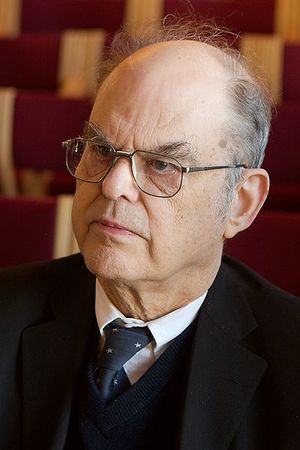Difference between revisions of "John Griggs Thompson"
Jump to navigation
Jump to search
Titansable (talk | contribs) m (Automatic page editing) |
Artaxerxes (talk | contribs) |
||
| Line 1: | Line 1: | ||
| + | [[File:Griggs Thompson.jpg|thumb]] | ||
| + | '''John Griggs Thompson''' (født 13. oktober 1932 i [[Kansas]], [[USA]]) er en matematiker kjent for sitt arbeid innenfor feltet endelige grupper. | ||
| + | [http://en.wikipedia.org/wiki/John_Griggs_Thompson Wikiartikkel] | ||
| − | ''' | + | =='''Oppgaver'''== |
| + | [[Oppgave 200-81]]<br> | ||
| − | + | {{DEFAULTSORT:Thompson, John Griggs}} | |
| − | |||
| − | |||
| − | |||
| − | |||
| − | |||
| − | |||
| − | |||
| − | |||
| − | |||
| − | |||
| − | |||
| − | |||
| − | |||
| − | |||
| − | |||
| − | |||
| − | |||
| − | |||
| − | |||
| − | |||
| − | |||
| − | |||
| − | |||
| − | |||
| − | |||
| − | |||
| − | |||
| − | |||
| − | |||
| − | |||
| − | |||
| − | |||
| − | |||
| − | |||
| − | + | [[Category:Menn]] | |
| − | + | [[Category:USAnere]] | |
| − | |||
| − | |||
[[Category:Matematikere fra USA]] | [[Category:Matematikere fra USA]] | ||
[[Category:Født 1932]] | [[Category:Født 1932]] | ||
| − | [[Category: | + | [[Category:Levende]] |
[[Category:Historiske Fjes 200]] | [[Category:Historiske Fjes 200]] | ||
